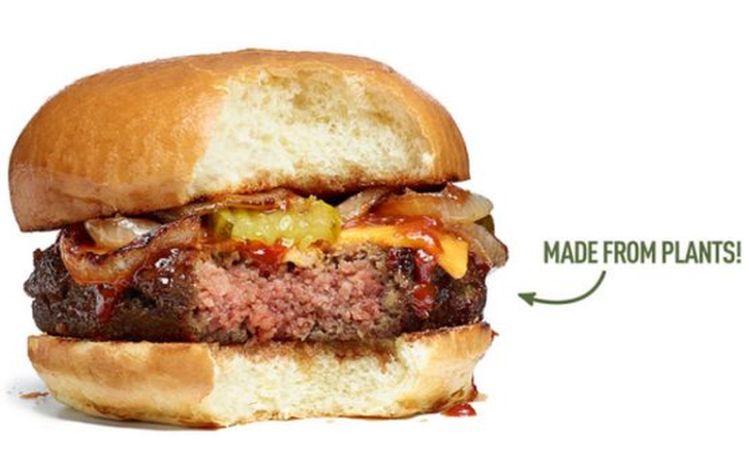
It is much easier today to do the number one thing you can do to reduce your environmental impact: stop (or at least greatly reduce) eating meat. It was much harder back when I stopped 25 years ago because there were no good meat substitutes like the Impossible Burger.
Eating any meat (particularly beef) has devastating environmental impacts and is the root cause of most of our environmental problems. It takes exponentially more land and resources for a meat-based diet. For example, animal agriculture is responsible for more greenhouse gas emissions than the entire transportation industry (cars, planes, trains, trucks, and ships). It is also the leading cause of rainforest destruction, species extinctions, water pollution, and the dead zone. https://www.youtube.com/watch?v=g1z1taw6yNw
Unfortunately, most people who care about the environment either do not understand the devastating consequences of their food choices or even with a climate and species extinction crises, don’t care enough to take personal responsibility for their food choices. Fortunately, there are companies that realize we cannot solve our environmental problems without getting off animal agriculture and they have been working on plant-based meat you cannot tell from the real thing that has exponentially less environmental impacts. They are making major progress!
The first one is the Impossible Burger: https://impossiblefoods.com/ The Old Bakery Beer Company in Alton serves it. Before one of our meetings, I got 6 meat eaters to try it and they all liked it and could not tell it from the real thing. It is also sold at Burger King (Impossible Whooper), White Castle (Impossible Slider), Red Robins, and Qdoba. Here is a link showing how much less environmental impacts it has: https://impossiblefoods.com/if-pr/LCA-Update-2019
The second one is the Beyond Burger: https://www.beyondmeat.com/ Some Schnucks carry it as well as Green Earth Grocery in Edwardsville. They now have some sausages and frozen Beyond Beef. TGIF serves it. Here is information of the impact: https://www.beyondmeat.com/about/our-impact/
Many other major companies are also working on plant-based meats. KFC has a plant-based chicken sandwich that is setting sales records in England. Even Tyson sees the writing on the wall and is working on plant-based meats.
These companies’ objective is to replace the use of animals for food production. They are targeting meat eaters like most of you reading this. When they succeed this will have major impacts on everything we care about. They are just getting started and have made amazing progress. They need people like you to help lead the way and create the demand that will bring down the prices and spur better plant-based replacements. Every time you don’t eat meat, you are helping protect the environment. Start trying the plant-based option. It is so easy now to only go to fast food restaurants where you can buy plant-based meat!
With the climate and extinction crises, it is also past time our local Sierra Club stop allowing meat at events and start leading the way to sustainability by serving the solution like the Beyond Burger and Beyond Sausage. If our group is not willing to lead the way with such good plant-based meat, what chance do we have to save the planet?
Finally, if you think these impacts do not add up, let’s look at some numbers. According to the MO Coalition for the Environment’s STL Food Study, the total land area of the Saint Louis Regional Foodshed (100 miles from the arch) is 21,372,876.8 acres and there are 12,291,726 acres farmed in the Foodshed. According to the study, 4,074,725 people live in the Foodshed.
So, let’s do the math. It takes 1/6 of an acre to provide for a plant-based diet. A vegetarian diet takes about 0.5 acres and a meat-based diet takes about 3 acres (unless it is grass-fed then it is 11.7 acres). So, unless it is grass-fed, the vast amount of land farmed in the foodshed is enough for a meat-based diet. On the other hand, a vegan (only eats plants) can be fed on 1/6 of an acre. So, it would take 679,121 acres to feed the foodshed’s population a plant-based diet. If you subtract this from the 12,291,726 acres being farmed in the STL foodshed, which would leave 11,612,605 acres that could be used for conservation/habitat. That is enough land for 1,400 Marquette Parks or 40 Shawnee National Forests-just within 100 miles of the Arch! Everyone eating plant based in the STL Foodshed would free up more than 3 times the total amount of Federal/State land in IL and MO! To feed the STL Foodshed a vegetarian diet, it would take 2,037,363 acres. This would free up 1,200 Marquette Parks/34 SNFs of land within 100 miles of the Arch!
Some further reading:
http://www.cowspiracy.com/facts
https://janeunchained.com/2019/04/04/legendary-primatologist-jane-goodall-says-ditch-meat/